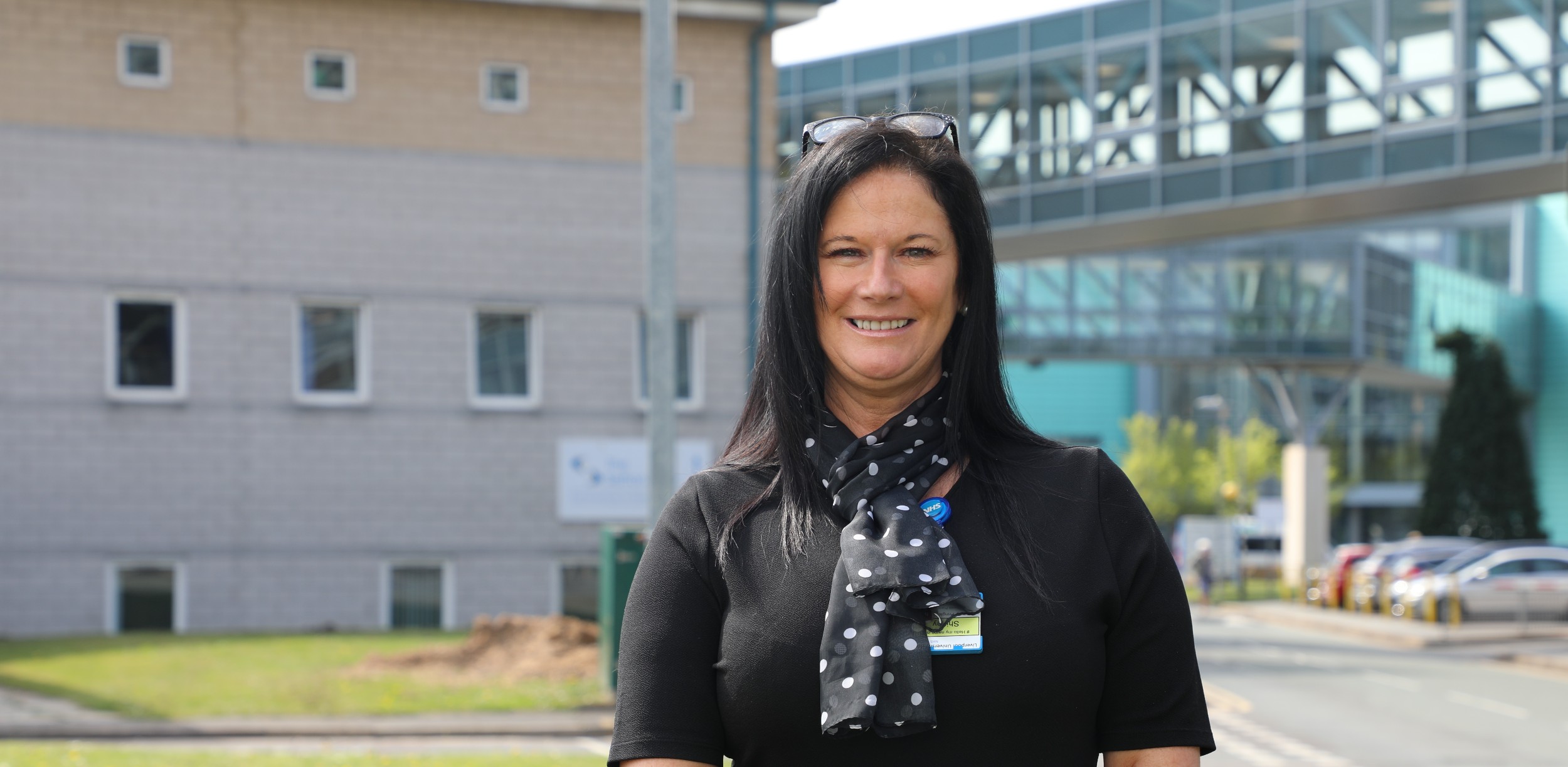For our latest Humans of Liverpool we spoke to Shirley Pringle, our Surgical Studies Research Matron.
“It’s really heart-warming to think of the difference that our research trials can make to people’s lives and their treatment. It’s not until I look back on how the service has grown, that it becomes apparent how much research at Liverpool University Hospitals has transformed, and I’m really proud to play a part in it.
“I started my career in healthcare 28 years ago as a Health Care Assistant at Aintree University Hospital’s Fracture Clinic, before moving to Endoscopy. In 2002, I progressed on to my nurse training, whilst I was pregnant with my son.
“I’ve since been in research for 14 years after being approached by one of the research nurses that worked in Endoscopy alongside me. She asked me to apply for a secondment post that would cover her maternity leave -it goes without saying that I jumped at the opportunity!
“I was really keen to make a difference, so I opened the first head and neck study at Aintree with Professor Richard Shaw and Professor Terence Jones. It was a complex study, but it took off almost immediately and together we decided to start growing the research portfolio at the hospital. Fast-forward to today, and LUHFT is one of the leading sites for head and neck research in the UK.
“I’m now a Research Matron for surgical studies across the three LUHFT sites and the Liverpool Head and Neck Centre. Last year, I was also appointed as the UK’s first sub-speciality Lead Nurse for head and neck cancer at the National Institute of Health Research, which makes me really proud.
“Although I have a fabulous team behind me, the job can be tough at times. Sometimes we’ll have to speak to a patient within the same hour they’ve received a cancer diagnosis. As well as assessing an individual’s eligibility for trial, we also have to arrange for bloods and scans to be carried out before randomising the patient on to a study. We’re currently trialling a new vaccine for cancer and are in a position where we can offer patients cutting-edge immunotherapy research treatments.
“One of the most rewarding parts of my job is being able to be that extra support for patients that are undergoing cancer treatment. It’s fantastic to be able to follow them throughout their treatment and see first-hand the difference we’re making to their lives.
“I’m lucky enough to go home to my two children and husband every night. My 18-year-old daughter is following in my footsteps and is about to start a nursing degree at university, and my son has followed his passion to become a tattoo artist. In my spare time I like to think of myself as a gin connoisseur and enjoy winding down in my home bar with my friends!"
